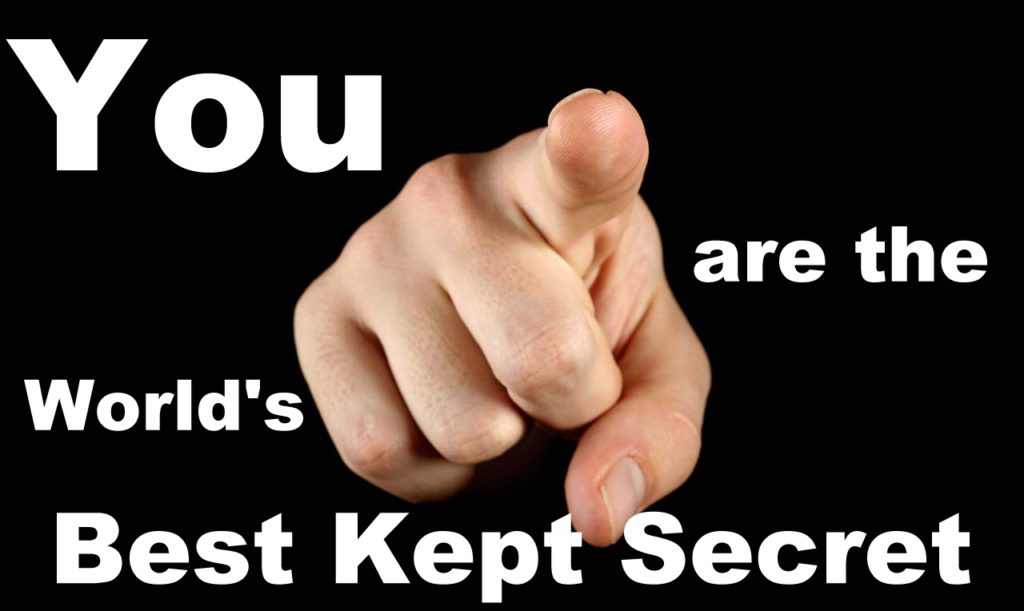You are the world’s best kept secret.
While you navigate and interact with the world as we know it, you do your best to understand other people whom you meet along your journey. You watch, listen and even try to put yourself in their shoes in an effort to understand them, and in some ways we can find ways to perceive or understand them, but you can never truly know them. How do you know? Because you are the world’s best kept secret.
No one knows who you are
When you think about it, no one can ever really know who you are. Even if you try to be totally transparent and open, revealing everything about yourself and going through rigorous efforts to try to get someone to understand who you really are and what you really think or feel, it is impossible to relate the totality of your personage to another person because
No one knows what you think
That part of you which is boundless exists and thrives in the intimate spaces between your words, actions, biochemistry, and other methods of observable communication occupied by you and only you are your thoughts. Nobody knows what goes on inside that head of yours; no one. You are the personification of the idea that, “Still waters run deep.”
No one knows what you feel
Everything that you experience or feel in this life is not simply the observation of life though your five senses. Your feelings, the way you feel about something, or the nearly unlimited array of feelings that only you can feel cannot be authentically understood, felt or known by another person. Not even the world’s most attuned, sensitive, empathetic being can know the breadth of feeling as can only be experienced by you.
You hide behind your disguise
You do, I do, and we all hide behind our respected disguises. We represent ourselves to our communities as we might like to be perceived. We allow different versions of our selves to be revealed (or more correctly “projected on”) to others depending on the level of intimacy we maintain with the recipient of each particular projection.
Still we try to know someone else
Even though each one of us holds our inner most thoughts so dear, never to be fully shared with any other human being, still in our desire to connect with others, we imagine we can see into the life, heart and mind of someone else, even when we know this degree of intimacy is highly improbable. We have impeccable knowledge of the impossibility of anyone else knowing us fully, yet we hold onto the illusion that we can know someone else and act surprised when we witness some unexpected personal revelation. This dichotomy is referred to as asymmetric insight among the mental health community.
And we want to be understood
There is a part of you that wants to be understood, yet no one could possibly know you. And if given half the chance, even if you could allow someone to see everything inside of you, you wouldn’t willingly allow it. But, you do have certain parts of you that you long to share with another person who resonates with your perspective; someone who would agree with you and support your point of view, if it could understood as you understand it without judgment. We all seek this harmonic balance with another being.
Tolerance is the key
So the key to this conundrum is tolerance. The idea that, “I am me and you are he and we are all together,” such as conceived by John Lennon in his cryptic song in which he dons the disguise of the walrus, refers to us. We are all what we are, that is all we can be and we can only do the best we can with what we have. We all suffer from the same human condition and the best we can do is to understand that we are all okay.
If you want to be honored for who you are, the only way to have any hope of being respected by anyone else is to first honor others with the same respect you might like.

